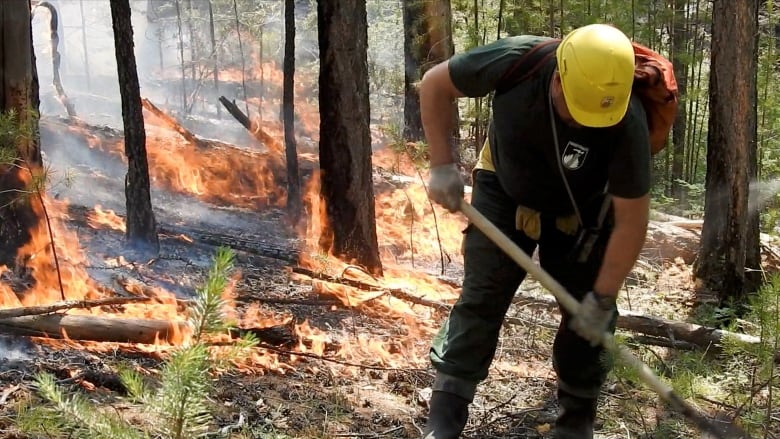SOURCE: CBC
DATE: July 12, 2020
SNIP: Right around now, University of British Columbia climatologist and tundra researcher Greg Henry would usually be up at Alexandra Fiord on the central-east coast of Canada’s Ellesmere Island experiencing the Arctic’s warming climate up close.
Instead, the pandemic has kept his research team grounded in Vancouver — and his focus has shifted to observing the dramatic events unfolding across the Arctic ocean in northern Siberia.
“It’s remarkable — it’s scary,” said Henry of the incredible run of high temperatures in Russia’s far north that have been breaking records for the past month.
This week, a European Union climate monitoring project reported temperatures in June were up to 10 degrees higher than usual in some parts of Russia’s Arctic, with an overall rise of five degrees.
The heat and dry tundra conditions have also triggered vast forest fires. Currently, 1.77 million hectares of land are burning with expectations that the total fire area could eventually surpass the 17 million hectares that burned in 2019.
Equally striking is where the fires are burning.
“Now we are seeing these fires within 15 kilometres of the Arctic Ocean,” said Henry. “Usually there’s not much fuel to burn there, because it’s kept cold by the ocean so you don’t get ignition of fires that far north.”
This year though, he said the heat has dried the ground out enough to change the dynamics.
“It’s a harbinger of what we are in for because the Arctic has been warming at twice the rate of the rest of the planet.”
“The frequencies and intensities of fires in Siberia have increased much due to climate change,” said Anton Beneslavskiy, the wildfire coordinator with Greenpeace Russia in Moscow.
“On this scale, the fires are unmanageable.”
Greenpeace has long argued that the Kremlin’s rules and policies on fighting forest fires have made the challenges brought on by hotter, dryer weather worse.
Russia has the largest forested area in the world, much of it sparsely settled.
“It’s a vicious cycle. More fires produce more climate change and more climate change fuels more fire.”
Russia’s economy is heavily dependent on resources from its Arctic region — especially oil and gas — and it’s the fourth largest emitter of greenhouse gases in the world, after the U.S., India and China.
But while Russia has ratified the Paris Climate accord, it is not required to cut emissions as they are still lower than 1990 levels, when the Soviet economy was heavily industrialized.

